
Healey Plan Not Enough to Close T’s Budget Gap
Gov. Maura Healey’s push to increase state support for the MBTA could help the agency navigate the year ahead, but it would not be enough to solve a projected budget gap, officials said Thursday.

Gov. Maura Healey’s push to increase state support for the MBTA could help the agency navigate the year ahead, but it would not be enough to solve a projected budget gap, officials said Thursday.
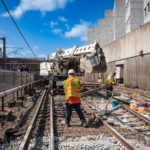
In the second year of spending from a new revenue source tied to the state’s highest earners, Gov. Maura Healey plans to allocate the growing pot of money on MBTA fare relief for low-income individuals and leveraging funds to make capital repairs across the state’s higher education institutions.
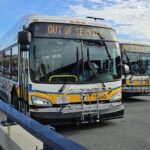
Potentially teeing up a new round of debate about how the state funds public transit, MBTA officials on Friday rolled out a dire financial forecast that projects a sizable operating budget shortfall this year and a nearly $1 billion chasm within five years.

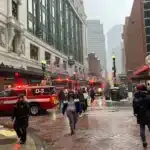
Reports of smoke at the Downtown Crossing station triggered massive disruptions to the MBTA’s core subway system, shutting down more than a dozen stops on a day when the morning commute was already snarled by winter weather.

A hiring blitz during Gov. Maura Healey’s first year in office boosted the MBTA’s headcount by more than 10 percent as the agency works to fill gaps its ranks that drove safety, maintenance and reliability problems for years.
Massachusetts faces a huge question mark about how to fund the future of transportation in the commonwealth. Gov. Maura Healey gets first crack at laying out an answer next month.
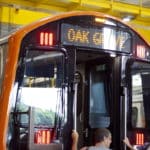
The financial and policy analysts at the Mass. Taxpayers Foundation have mapped out how “the path to a safe and reliable transit system just got a lot longer” thanks to a ballooning price tag for bringing the MBTA’s infrastructure into a state of good repair.

Lynn has its train back, after over a year without following the MBTA’s closure of its downtown commuter rail station in October 2022 due to growing safety concerns.

Healey came into office with the MBTA in disarray. And while she’s overseen a hiring blitz and new plans to fix tracks in disrepair, she’s raised eyebrows in recent weeks with comments that suggest an interest in reopening debate on how the state funds transportation.

Contractors responsible for fixing narrow rails on the MBTA’s newest stretch of tracks requested a second extension for their project that could push its endpoint into the new year, the agency’s top boss said Wednesday.

The MBTA Board in January plans to start formally considering potential fare changes, including low-cost fares that could benefit tens of thousands of riders.
Jingle bells, jingle bells, please no catastrophes. Oh what fun it’d be to find enough funding for the T!
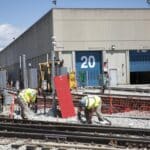
Talks are already underway between Gov. Maura Healey, state lawmakers and unnamed “stakeholders” about what kinds of taxes and fees are necessary to address a massive list of infrastructure needs at the MBTA, Healey said Thursday.

Ridership on the MBTA’s commuter rail system continues to rebound strongly, providing an interesting data point in the debate over whether Boston in the post-COVID era will face an office space glut that will make the city feel like a ghost town of empty buildings.

Gov. Maura Healey said Monday that she believes the MBTA can be “safe, reliable, running on time, [and] running at speeds that actually get people there quickly” by the end of next year, and said Monday that revenue for the transportation system is “going to be the subject of a lot of discussion.”
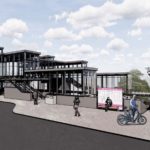
Newton city councilors are facing pressure to scale back plans to rezone the community’s 13 commercial nodes for more multifamily development to comply with the state’s MBTA Communities law, but one of the mooted suggestions could come at a cost: plans to revamp its commuter rail stations.

The MBTA will need almost $15 billion more to modernize and fix its trains, tracks, facilities and equipment, the transit agency announced Thursday afternoon.

The MBTA is planning to unleash a year-long campaign of maintenance shutdowns to eliminate the slow zones and other track headaches that have bedeviled subway riders for over a year.

Staffing woes last year made the MBTA put the brakes on an ambitious plan to revamp its bus network into a more reliable and frequent companion to the subway system. But what appears to be the runaway success of the T’s hiring efforts has put the idea back on the table.